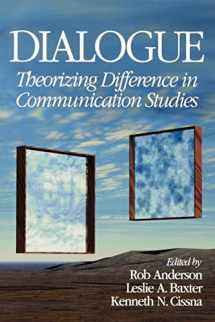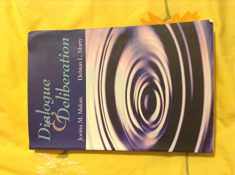
Dialogue: Theorizing Difference in Communication Studies
Book details
Summary
Description
Dialogue: Theorizing Difference in Communication Studies is the first anthology of work on dialogic approaches to communication that offers a state-of-the-art collection of original essays in this emerging research area. Editors Rob Anderson, Leslie A. Baxter, and Kenneth N. Cissna have gathered the most respected scholars in the field to describe their research projects, discuss critical elements of dialogue, and anticipate the evolution of the study of dialogue. With a foreword by Julia T. Wood, contributors include James R. Taylor, Stanley Deetz and Jennifer Simpson, Sheila McNamee and John Shotter, and Mark McPhail. The contributors consider a wide range of settings--interpersonal, organizational, societal, and political--and look at the methodology as well as the research underpinning dialogic approaches to the study of communication. The core texts of dialogue studies, including Buber, Gadamer, Habermas, and Bakhtin, set the foundation in Part I, Exploring the Territories of Dialogue. In Part II, Personal Voices in Dialogue, the contributors survey one-on-one, small group, and organization dialogue. Part III, Public Voices in Dialogue, examines the spaces for discourse in more expansive public, intercultural, and mediated settings. The editors pull together disparate implications, connections, and new directions in a dialogue-inspired conclusion. Readers of Dialogue will be able to frame different influential conceptions of dialogue, establish the concepts’ history in communication studies, and trace both common and unique threads that connect different theorists. This volume is recommended for graduate and advanced undergraduate courses in Communication Theory, Interpersonal Communication, and Organizational Communication.


We would LOVE it if you could help us and other readers by reviewing the book
Book review




